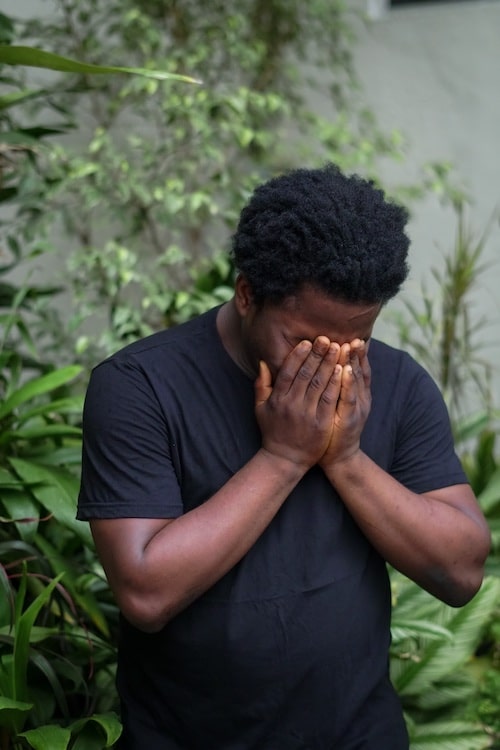We enjoyed an interesting and thought provoking in-person seminar with our host, Briony Martin. The…

Privileged Abandonment, Normalised Neglect and Trauma: Understanding Boarding School Syndrome – with Nick Duffell (Apr. 2020 and Nov. 2022)
Nick Duffell provided us with a second opportunity to listen and learn from his personal experience, clinical work, writing and research in working with boarding school clients. He delivered a stimulating and enjoyable seminar and connected well with his audience – an interesting phenomenon – as all of the attendees were online and connecting remotely via video-conferencing.
I felt the power of the collective, as we navigated together the first online seminar event, whilst currently experiencing social distancing and isolation, was a very poignant and powerful parallel to the seminar topic. It reminded me that our fundamental need as human beings, is to be and feel connected and seemed to embody today’s learning experience.
We were given the background to the British boarding school system and how the child can feel the loss and abandonment of their primary and secure base (most often, though not always the case) to be given the privilege of a boarding school experience. He describes it as “normalised neglect” and Nick provided us with guidance and information on how to work with clients by using “de-normalising “skills.
The group thought about the different types of boarding schools, institutional systems, the duration of stays and the ages of the children and how this would have varying impacts on their developmental process into adulthood.
Nick suggests that therapists can learn new skills to work with ex-boarder clients and the work is the ”un-making of the child”. We thought about how we would be working with the ‘child part’ of the adult client to uncover and understand their S.S.P. – Strategic Survival Personality – which is their unique way of coping. Nick names 3 types; Compliers, Rebels and Crushed. It was useful to think about how a client could have taken on one or more of these coping strategies/personalities and to work with them to explore how it has manifested in their lives.
I thought about the aspects of developmental trauma and how our current clients are likely to present with issues such as, addiction, relationship challenges, depression and self harm, to name a few.
Nick answered our questions on how we can work with these clients (who are likely to present with different issues) when the past boarding school experience can remain hidden and unconscious. My work as a relationship psychotherapist has helped me to think about the couple dilemma in the room and what part a client’s past boarding experience contributes to such issues as intimacy, vulnerability, sexuality and self esteem.
Nick shared with us a method to support our clients and provided the 3 part model to use as a process to work through and enable the client to move from survival to living
1)Recognise 2) Accept 3) Change
Nick’s training courses are available for additional learning and he also suggested that we explore the wide range of disciplines and learning tools in the area of trauma work.
I logged off having much to think about and felt motivated to reflect on this excellent seminar to enhance my working practices.
_________________________________________________________________________________________________________________
Average feedback scores from our event 2020:
Organisation of event: 4.3 out of 5
Speaker: 4.5 out of 5
Average feedback scores from our event 2022:
Organisation of event: 4.5 out of 5
Speaker: 4.3 out of 5
_________________________________________________________________________________________________________________
Feedback from our event:
2020
“Considering the whole conference was the first virtual event ever held – I thought it was all excellent and worked extremely well – even the interaction between delegates was good” – Suzanne, Goring on Thames
“I hold Nick and his work in high esteem, it was great to hear him speak about it live albeit online”
“I really appreciated Nick Duffell’s presentation – his narrative comments backing the slides were particularly helpful”
“Despite the chaos of lockdown, the transition to Zoom was done really well and worked as a viable alternative”
“I found the Q&A/comments parts really useful and interesting – the opportunity to hear individuals’ experiences. And seeing others’ faces (on zoom) rather than backs was a plus for me!”
“Great atmosphere and very calm/natural/easy manner of organiser (Wendy) and the other’s helping to organise the event” – Judith Howell
“Nick is very passionate about this subject”
“I thoroughly enjoyed this training event and look forward to attending other CPD events of similar interest in the future”
“The Speaker was excellent – content, adaptability and teaching style”
2022
“Loved this workshop, feel very inspired and more curious to read and find out more.”
“I really appreciated Nick’s willingness to address our questions so throoughly and his compassion in understanding how challenging some of what was raised might have been for us. Hugely useful!” – Merri Mayers
“Very interesting topic and defenitely food for thought. It will help me no end with my clinical work. Thank you!”
“It has given me much better understanding of this client group, what way this may be expressed, and ways to work better with these. The discussions have been very informative. It has also been helpful to point to further material on the subject”
“I thought the CPD day was one of the best and most interesting, and personally helpful, that I have attended for some considerable time and I shall be looking to attend more workshops in future.”




This Post Has 0 Comments